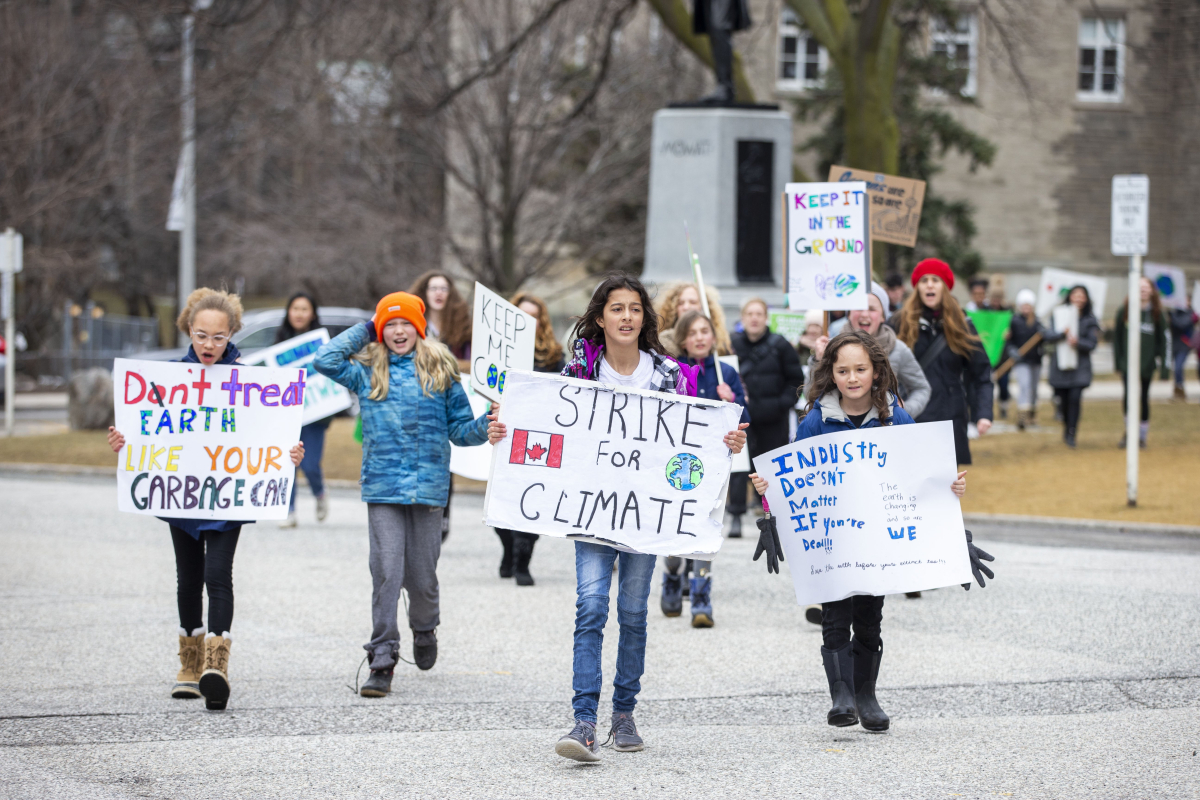Support strong Canadian climate journalism for 2025
The student climate strike on March 15 made it clear that young people have had enough. We are no longer waiting for others to secure our future. Students took to the streets on that day because we have big problems to solve and what we’re doing right now isn’t working. It’s time to be bold and innovative. It’s time to try something new.
By 2030, the Intergovernmental Panel on Climate Change says we need to be well on our way to a carbon neutral society. Meanwhile artificial intelligence systems, complex global trade networks, and automation are about to completely reshape how we work. The Institute for the Future, a non-profit educational organization, estimates that 85 per cent of the jobs today’s students will be doing in 2030 don’t exist yet. That means we have to solve long-term problems while navigating a fast-changing world.
Youth will bear the brunt of the impacts of these problems and youth will be the leaders who overcome them. Yet our biggest challenge is that we face issues like climate change, inequality, and disruptive new technologies all at once. This means that leaders need to reach across boundaries, understand issues from multiple perspectives, and radically collaborate. They need to be adaptable, knowledgeable, and connected. So equipping young people with the skills they need to lead and innovate is in everyone’s best interest. The Trudeau government’s most recent budget emphasizes the importance of skills development, while the OECD encourages all its members to develop national skills strategies.
Youth Climate Lab is an organization that works to support and accelerate youth-led policy, projects and business ideas that promote action on climate change.
Recognizing this, we are working to turn young people’s energy into impact. We accelerate youth-led initiatives for a sustainable future by making crucial connections to mentors, funders, and partners; training youth in key skills like design thinking and entrepreneurship; and advocating for youth interests to leaders in government and industry. As a youth-for-youth organization, we’re well-placed to understand what youth need to fulfill their potential and take innovative approaches to meet those needs.
This is why we created the our2030 Series, to spark action today on the challenges of tomorrow. We are experimenting with action-oriented models to test new approaches that drive real change. Between March 26 and April 10, we are hosting events in Ottawa, Montreal, Toronto, and Vancouver that will bring ambitious youth together to collaborate and create solutions to the biggest problems Canada — and the rest of the world — will face in 2030. Mentors, training, and tools will help youth develop the skills and connections they need to bring about transformative change to achieve the Sustainable Development Goals.
You can learn more about the Series, see the schedule of events, and connect with us at our2030.org.
The future will be as we build it. Let’s get started.







Comments
This sounds like a marvelous initiative. But arguably, it is the last thing we need. The power of youth right now is in the streets, not in meeting rooms or in entrepreneurial projects. Their demonstrations of outrage and calling out of political leadership over the past several decades are getting attention because they are de-legitimizing the status quo. The minute you channel that anger into meeting rooms with funders and mentors, and focus youth on making even more recommendations to government, this movement dies and the status quo continues. We don't have time for that. The solutions to the climate crisis are well known and accessible. What has been missing is the counter-power to challenge the system that has produced the climate crisis and is blocking solutions. Now we have it with the school climate strikes, 350.org and others. We need to keep this energy moving and growing. Institutionalizing it will kill it. As the feminist group Incite! says, the revolution will not be funded.